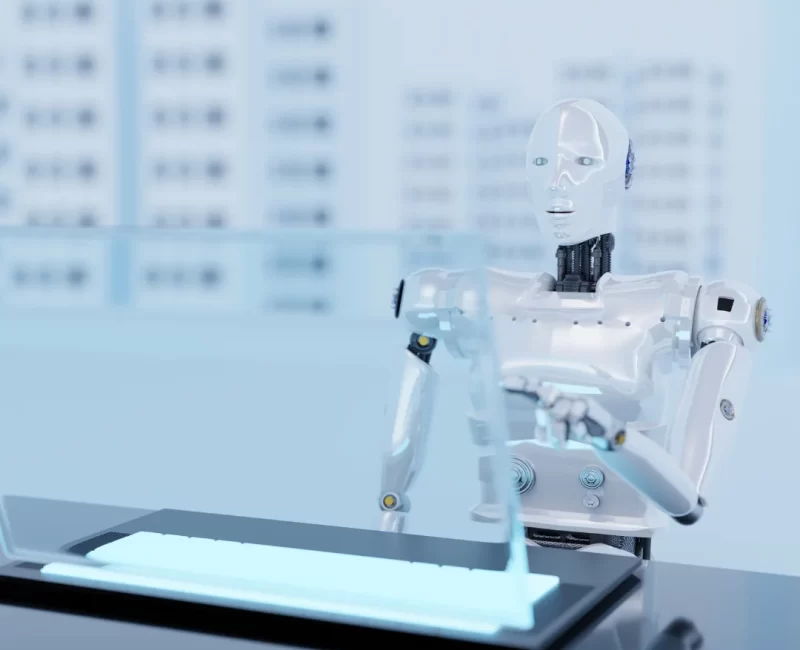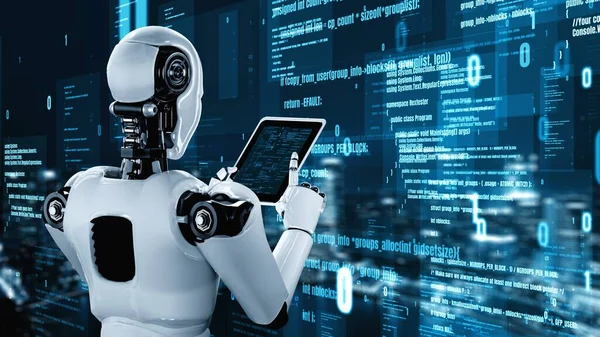Artificial Intelligence is rapidly reshaping the landscape of software development, ushering in a new era where efficiency, innovation, and continuous improvement are the norm. The integration of AI into the software development process is not merely about incorporating intelligent features; it represents a fundamental shift in the way we conceive, design, and deliver software solutions. In this article, we explore the profound impact of AI on software development and applications, highlighting the benefits and transformations that lie ahead.
AI AS THE CORNERSTONE OF SAAS SOLUTIONS
AI is not just enhancing individual features; it is becoming the bedrock of Software as a Service (SaaS) solutions. Machine learning and AI models are empowering SaaS technologies to drive efficiencies across diverse business processes. This evolution positions AI as the foundation for a new paradigm in software development, where routine tasks become automated, freeing up resources for high-value additions and innovation.
PLATFORM THINKING: FROM DESIGN TO DEPLOYMENT
With AI at the core of platform development, the traditional concept of “design thinking” is evolving into “platform thinking.” AI enables development teams to rapidly build and deploy functional proofs of concept, conduct real-world tests with end users, and deploy fully tested applications based on real-time feedback. This shift towards goal-oriented software design, facilitated by AI, empowers development teams to bring ideas to fruition rapidly.

HOW AI WILL CHANGE SOFTWARE DEVELOPMENT AND APPLICATIONS
As AI becomes an integral part of software development and business processes, team structures and skill sets will undergo significant evolution. The AI software development process will manifest in various forms, such as platform suggestions, companion bots, analytics, and reporting, actively contributing to the software delivery team.

INTELLIGENT AUTOMATION FOR TRUE AGILE DEVELOPMENT
While agile methodologies have been widely adopted, achieving true continuous delivery has been a challenge for many businesses. AI based software development emerges as an extension of software delivery teams, enabling intelligent automation that facilitates continuous delivery. This includes dynamically creating design systems, implementing code through bots, and utilizing self-built proofs of concept for comprehensive feature testing from the outset.
TRANSFORMING SOFTWARE DEVELOPMENT ROLES
The integration of AI and software development will redefine the roles within software development teams, creating new job opportunities and elevating existing roles:
Elevated Role of Business Analysts
Business analysts will play a pivotal role in driving business strategy, with AI assisting in generating user stories, requirements, and acceptance criteria. The alignment of AI-generated ideas with platform thinking will be a key responsibility.
Rise of Interaction Design Roles
Visual AI advancements will reduce the demand for traditional UI design roles, leading to a surge in interaction design roles. Interaction designers will guide AI in crafting UI and UX through design systems, graphical guidelines, and continuous user testing.
Empowered Software Architects
Software architects will harness the power of AI to design governance systems, shaping code standards, development processes, and more. They will play a crucial role in enabling AI to build, enforce, and evolve these systems.
Emergence of Test Architecture as a Key Role
With autonomously built software, the role of test architects becomes pivotal. Continuous testing becomes imperative, and test architects will design, deploy, and maintain complex test architectures, ensuring the robustness of AI-driven software.
CONCLUSION
In conclusion, the future of software development is intrinsically linked to the integration of AI into every facet of the development process. From transforming roles within development teams to enabling true agile development and continuous testing, AI is reshaping the way software is conceived, built, and delivered. Embracing these changes will not only lead to increased efficiency but will also unlock unprecedented levels of innovation, propelling businesses into a new era of technological advancement.







